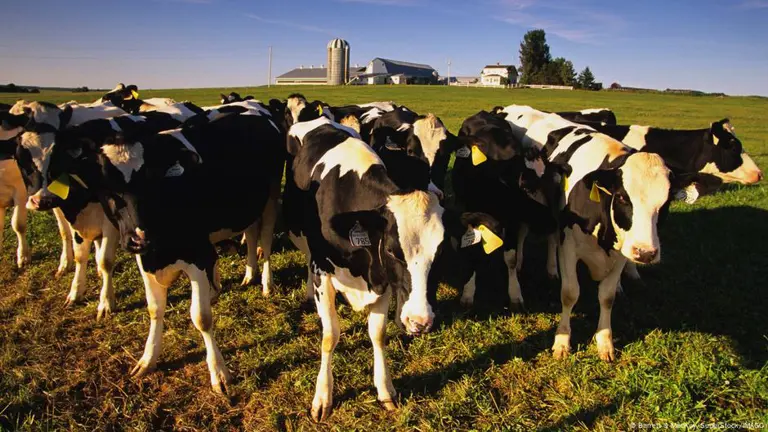Columns
Federal Government Through The Ministry Of Aviation And Aerospace Development And The United Arab Emirates (UAE) Reach Agreement On Resumption Of Travels For Nigerian Passport Holders.
Published
9 months agoon
By
Ekwutos Blog
FG, UAE Reach Agreement on Resumption of Travels for Nigerians, Visa Ban Lifted Effective July 15.
The federal government of Nigeria and the government of United Arab Emirates have reached a mutual agreement for the resumption of travel to the UAE for Nigerian passport holders with effect from July 15, 2024.


You may like
Columns
Fubara’s chief of staff files N2bn suit against Ex-HoS Nweke, Channels TV
Published
3 hours agoon
April 10, 2025By
Ekwutos Blog
Edison Ehie, the Chief of Staff to suspended Rivers State Governor Siminalayi Fubara, has filed a N2 billion defamation lawsuit against the immediate past Head of Service of the state, George Nweke, and Channels Television.
Ehie is urging the court, presided over by Justice Stephen Jumbo, to award the sum as damages in his favour.
This follows a televised interview of Nweke on Channels Television on March 29, which Ehie claims was baseless, malicious, and falsely published in a most wicked manner.
When the matter came up in court on Thursday, Ehie’s counsel, Tuduru Edeh, SAN, sought a perpetual injunction restraining the defendants, whether by themselves, their agents, privies, servants, or any other representatives, from further publishing or disseminating the said defamatory content.
The plaintiff’s counsel also prayed the court to compel the defendants to immediately retract the publication and issue a public apology to Ehie.
The apology, he requested, should be broadcast on Channels Television, another national television network, and published in two widely read newspapers across Nigeria.
Justice Jumbo, in ruling on the application, granted the orders and directed all parties in the suit to refrain from making further public comments on the matter, pending the determination of the case.
The matter was adjourned to June 4, 2025, for mention and further proceedings.
Columns
CHALLENGES OF TERRORISM REQUIRES HOLISTIC AND MULTIFACETED APPROACH- SENATOR GAIDAM
Published
17 hours agoon
April 10, 2025By
Ekwutos Blog
The Honourable Minister of Police Affairs, Senator Ibrahim Gaidam has pointed out that addressing the challenge of terrorism requires a holistic and multifaceted approach among the security agencies
He stated this during the Stakeholders Conference on Security with a theme “A Path to Regional Cooperation” organized by the Ministry of Police Affairs in conjunction with the Nigeria Police Force and National Central Bureau (NCB) at the Rockview Hotels, Abuja.
Gaidam stated that implementing the International Standard and good practice of sound, modern, integrated, and cooperative border management will go a long way in putting an end to this threat.
He urged all stakeholders present at the conference to work collaboratively towards a shared vision of security. “We can overcome these challenges and emerge as a beacon of stability and progress in Africa if all hands are put on deck”. Gaidam stressed.
The Minister opined that the objective of this conference is to deliberate on the way forward to achieving a stable regional security thereby focusing on strategies to strengthen collaboration among Interpol member countries in West Africa with a view to fostering partnerships to share intelligence, expertise and approaches for combating trans-border crimes.
In his words, “Ladies and gentlemen, it is pertinent to state that the administration of President Bola Ahmed Tinubu GCFR has worked immensely to curb the insurgency caused by Boko Haram, Bandits and other transnational crimes. Some of these measures include biometric system at border checkpoint, integration of data analytics into border security operations and deployment of surveillance drones along critical border regions”.
Gaidam observed that despite Government’s efforts to end the menace of terrorism and violent extremism in the country, the threat posed by terrorism has risen significantly adding that Nigeria was ranked 6th most impacted country globally according to the 2024 Global Terrorism Index.
He enumerated Government to mitigating insecurity which include deploying the military, cooperating with international partners, implementing counter-terrorism legislation; adoption of a legal framework related to the West African Police Information System (WAPIS); provision of (WAPIS) terminals to allow security agencies access to critical information and Establishment of National Criminal Data Fusion Center (NCDFC) for the Nigerian Police Force.
In his goodwill message the Chairman Police Service Commission, DIG Hashimu Salisu (RTD) represented by Director Police Discipline, Ferdinand Uchechukwu Ekpe, stated that no nation can afford to stand alone in the face of threats and insurgency, noting that a secure and peaceful Nigerian state is necessary for a secure and prosperous West Africa and the entire ECOWAS market area.
Also, the Chairman, National Drug Law Enforcement Agency (NDLEA) Brigadier General Mohammed Buba Marwa (RTD) represented by Director Intelligence Kennedy Zirangey in his good will message states that, the conference came at the right time where the nation is faced with insecurity such as terrorism, banditry, insurgency, kidnapping, community conflicts and myriads of other security challenges adding that all the catalyst behind these insecurity threats is drug usage by the foot soldiers perpetrating these crimes.
Earlier, the Inspector General of Police, Kayode Adeolu, represented by Deputy Inspector General Logistics and Supplies DIG A. A. Hamzat, said that the convergence of illicit drugs, small arms, and light weapons in the hands of criminal elements continues to fuel organized crime and extremism, adding that weak border enforcement mechanisms. Fragmented intelligence sharing systems exacerbate the situation.
Columns
Trump’s tariffs: Why won’t countries buy US meat products?
Published
1 day agoon
April 9, 2025By
Ekwutos Blog
US President Donald Trump wants other countries to import more American beef and poultry. Several countries restrict importing these products for decades because they don’t meet their food safety regulations.
In an announcement on April 2, Trump called out Australian restrictions on US beef, saying: “We imported $3 billion of Australian beef from them just last year alone. They won’t take any of our beef.”
His administration also singled out the UK and EU for “non-science-based” restrictions on importing US beef, and Argentina for its ban of live US cattle exports.
Trump has used these import bans as part of his rationale to impose new trade tariffs.
Who do countries ban US beef imports?
There are different reasons why Australia, Argentina, the EU and the UK don’t import some American beef products.
For Australia and Argentina, the restrictions date back to 2003 when bovine spongiform encephalopathy (BSE) was detected in US cattle. BSE is a disease which affects the nervous system of cattle caused by misfolded proteins known as prions. It’s also known as Mad Cow Disease.
Humans can become infected with the disease when they eat meat contaminated with BSE. It is known as Creutzfeldt-Jakob disease in humans. Globally, a total of 233 people have died from Creutzfeldt-Jakob disease after eating BSE-infected.
US health authorities reduced the spread of BSE among US cattle sufficiently to see the ban on beef exports to Australia lifted in 2019.
“There may be a feeling from some producers or companies in the US that Australia is banning US beef, but there’s no ban in place,” said Robyn Alders, a veterinary scientist at the Australian National University.
But US imports are still restricted if they don’t meet Australia’s strict biosecurity laws. For US beef to be allowed into Australia, US cattle farmers must prove their cattle are entirely bred, grown and slaughtered in the US.
“To do that [tracing] in a way that would still make their product a cost-efficient thing to ship that product across to Australia, there are very few companies — virtually none at the moment — that are willing to take that on,” Alders said.
Argentina lifted its BSE ban on American beef products in 2018 but has maintained the restriction on live cattle imports until the two countries finalize a new “sanitary certificate”.
No added hormones for Europe and the UK
The EU and UK have restricted US beef imports since 1989 because the US cattle industry sometimes uses growth hormones to increase meat and milk yields. The EU does import non-hormone-treated beef from the US.
US dairy and cattle farmers routinely use hormones like estradiol 17ß and testosterone to promote faster growth and improve feed efficiency.
The EU’s ban rationale, which is also maintained by the UK post-Brexit, is based on its own scientific evaluation showing that daily intake of growth hormones can have negative health impacts, including evidence that estradiol 17ß can cause cancerous tumor growth.
The US cattle industry has argued against the EU’s restrictions, saying food safety testing in the US shows no risk to adult health.
“[However], the European perspective is that the entire population does not consist only of health adults, but [also] of infants, children, the elderly, the immunologically compromised,” said Erik Millstone, an expert in food and science policy at the University of Sussex, UK.
“EU authorities have done a much more comprehensive assessment of the risk of consuming hormone-treated beef [compared to US authorities],” Millstone said.
Chlorinated chicken banned in Europe too
The US has also criticized EU bans on importing US poultry that has been cleaned in chlorine.
US poultry farmers wash poultry meat in chlorine solutions to kill harmful bacteria such as campylobacter, which commonly causes food poisoning.
The European Food Safety Authority (EFSA) has said that chemical substances in poultry meat are unlikely to pose a health risk for consumers.
However, European authorities are concerned that rinsing chicken in chlorine at the end of the food production process allows lower standards of hygiene and animal welfare in earlier stages. EU regulations legislate animal welfare at all stages of the “farm to fork” process.
Millstone also that some research shows that chlorine rinsing may not actually have the intended effect of decontaminating meat.
“The chlorinated water was not an effective disinfectant. The bacteria remained in place, remained pathogenic, remained dangerous, infectious, but were just not detected,” Millstone said.
As a result, rates of bacterial food poisoning in the US are substantially higher than they are in the European Union or UK, said Millstone.
What do US producers need to do?
For the time being, US animal farming practices are either incompatible or too impractical to meet the food safety demands of export markets.
Australia and Argentina are open to importing US beef, but US producers must meet their regulatory standards.
For the UK and EU, it’s a more difficult path, which would require US producers to cease using growth hormones in beef production and end the practice of chlorine washing in poultry.
Polling data suggest Europeans are against allowing US meat products in — a 2020 poll found 80 per cent of the British public are against allowing imports of chlorinated chicken.

FG woos French investors with economic reforms, market potential

Buba Galadima: Tinubu is my friend — he helped my daughter get a job

Unity Cup 2025: Chelle hints on inviting new players
Trending

 Trending6 months ago
Trending6 months agoNYA demands release of ‘abducted’ Imo chairman, preaches good governance
- Business6 months ago
US court acquits Air Peace boss, slams Mayfield $4000 fine

 Politics6 months ago
Politics6 months agoMexico’s new president causes concern just weeks before the US elections
- Entertainment6 months ago
Bobrisky transferred from Immigration to FCID, spends night behind bars
- Entertainment6 months ago
Bobrisky falls ill in police custody, rushed to hospital

 Politics6 months ago
Politics6 months agoRussia bans imports of agro-products from Kazakhstan after refusal to join BRICS

 Politics6 months ago
Politics6 months agoPutin invites 20 world leaders
- Politics1 year ago
Nigerian Senate passes Bill seeking the establishment of the South East Development Commission.

